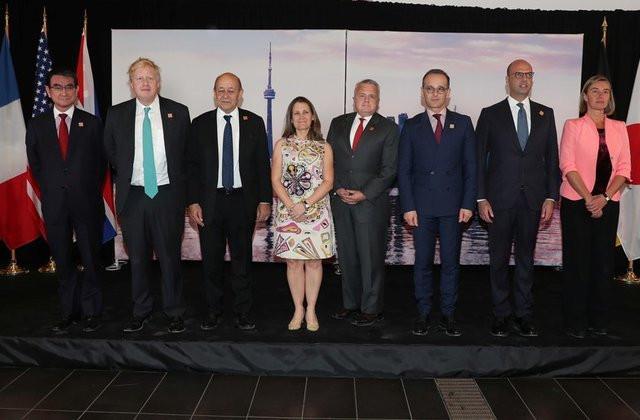
Foreign ministers from the Group of Seven leading industrialized nations agreed on April 23 to formally call on Russia to contribute to solving the crisis in Syria, German Foreign Minister Heiko Maas said.
Asked what the final communique from a two-day meeting would say, Maas told reporters that “It establishes again that there will be no political solution in Syria without Russia ... and that Russia has to contribute its share to such a solution”.
The G-7 countries presented a stern common front against Russian aggression at their foreign ministers conference in Toronto.
France’s President Emmanuel Macron said in an interview that the West must stand up to Putin’s attacks on western democracy, including the spreading of “fake news.”
“He’s strong and smart. But don’t be naive. He’s obsessed by interference in our democracies,” Macron told “Fox News Sunday” before setting off for Washington.
“That’s why I do believe that we should never be weak with President Putin. When you are weak, he uses it.” Canada’s Foreign Minister Chrystia Freeland hosted the meeting and invited her G-7 colleagues plus the European Union’s representative to a working lunch to discuss the crisis in Ukraine, where Russian-backed rebels have seized an eastern region.
Later, she said G-7 members had “reaffirmed our unity in support of Ukraine and a rules-based international order where state sovereignty and territorial integrity are respected by all.”
G-7 capitals are also worried about Russia’s support for Syrian leader Bashar al-Assad’s regime in his country’s brutal civil war and alleged attempt to kill a defector with a nerve agent on British soil.
The senior U.S. official stressed that this month’s joint U.S., French and British air strikes against Assad’s chemical sites were “not a one-off but was part of a sustained allied campaign to reestablish the deterrent against chemical weapons, and that includes using military means again if necessary.”